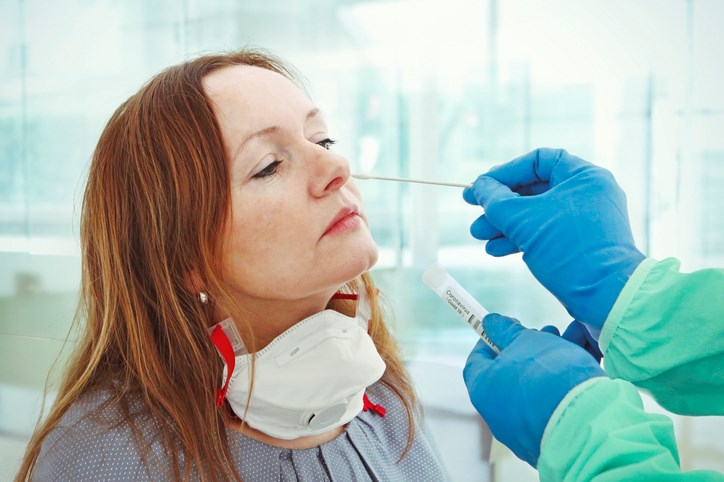The Saskatchewan Health Authority shared last week that it will be scaling up its plan to address the rising number of COVID-19 cases in the province, with part of that action to include the use of rapid testing products.
During a press conference on Nov. 26, SHA CEO Scott Livingstone said that the future strategy includes ramping testing capacity up to provide more than 4,000 tests per day by late December.
This will involve high-volume testing in both Regina and Saskatoon from the SHA, as well as using third-party testing to increase capacity further.
Hospitals in Moose Jaw, Regina, Saskatoon and Prince Albert will receive rapid point of care testing units, while long term and personal care homes will have access to rapid antigen tests as part of a pilot program.
Nine care homes received Panbio rapid antigen tests from Abbott Rapid Diagnostics, a German product that was very recently approved for use in Canada, on Nov. 27 to begin the first two-week deployment of the pilot.
Acute care facilities and mobile testing units are piloting Abbott ID NOW tests, which are a polymerase chain reaction (PCR) test.
The rapid tests are less sensitive than the tests done in the lab, said the SHA, but will be used in closely monitored conditions to gauge the accuracy of results.
The rollout of rapid testing units will be used largely to screen asymptomatic patients, residents and staff, with results available as quickly as 15 minutes. Positive test results from the rapid tests will be labelled presumptive and forwarded on to the Roy Romanow Provincial Laboratory for confirmation and follow-up contact tracing, said the SHA.
Introducing rapid tests is just one method the SHA is using to address current testing capacity reaching its limit, said Livingstone in the Thursday conference, with contact tracing staff and volunteers nearly overwhelmed with the volume of work hours currently needed.
The SHA is also planning to bring on nursing students from the University of Saskatchewan to handle callbacks for negative test results, as well as taking support from the provincial Public Service Commission and redeploying certified staff to handle rapid case notification and tracing.
But ultimately, the SHA is calling on residents to reduce their number of close contacts to help take the pressure off of contact tracers at this time.
"We certainly need to both decrease the number of positive cases and contacts if we’re going to get ahead of this virus," said Livingstone.
The SHA is also working with Quantum Genetix Canada as a third-party rapid test processor, for residents who need COVID-19 results to travel or businesses looking to implement rapid testing privately.
Quantum Genetix will administer rapid tests on a user-pay basis, with results provided within 24-48 hours. Positive results will be sent for further verification by the provincial lab, and all patient information collected will be shared with the SHA and reported in the province’s daily data.
Using a third party for private testing is expected to increase the SHA’s capacity to 350 tests per day by late December, and decrease the wait times for priority testing.




